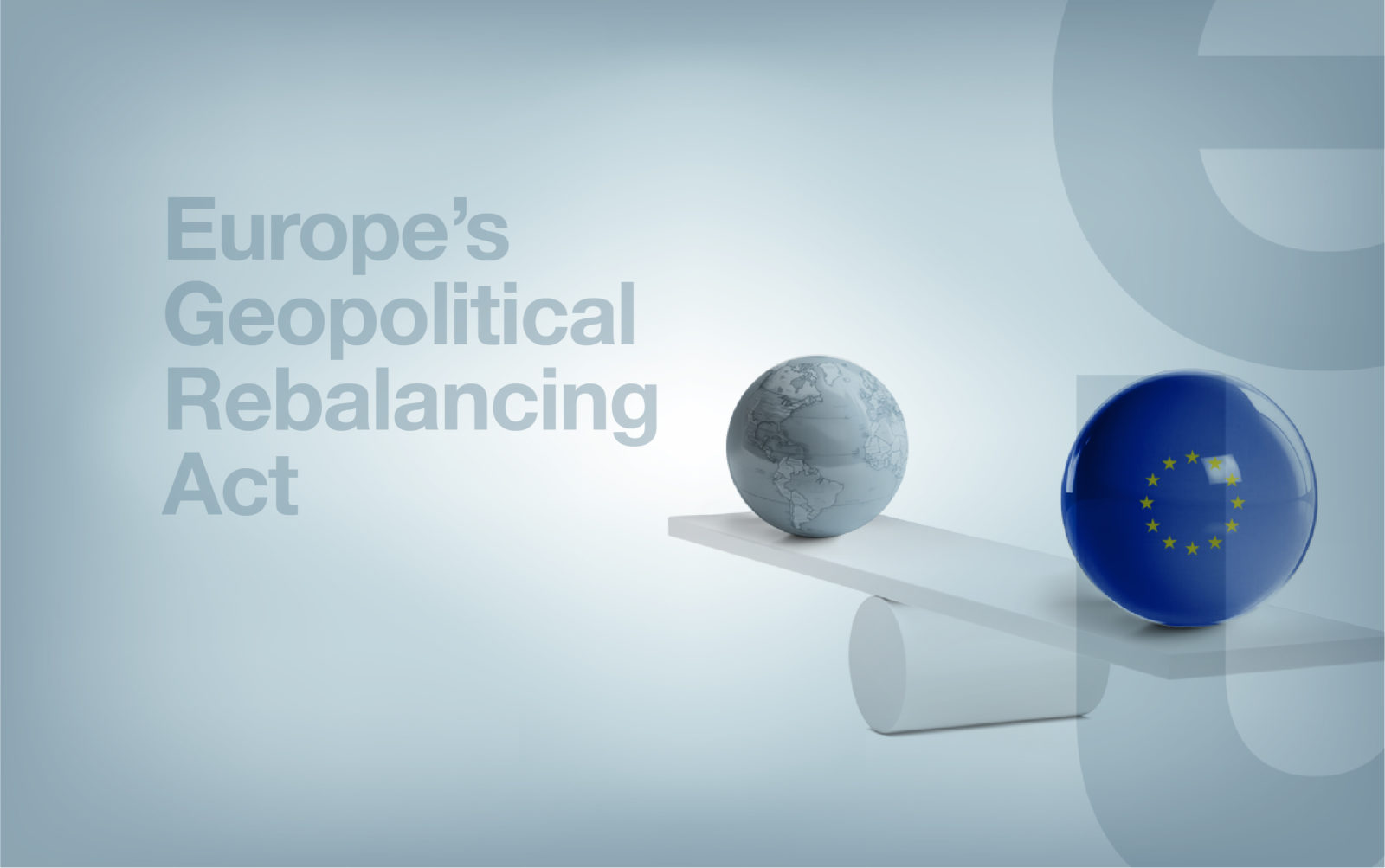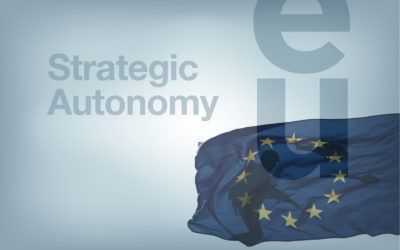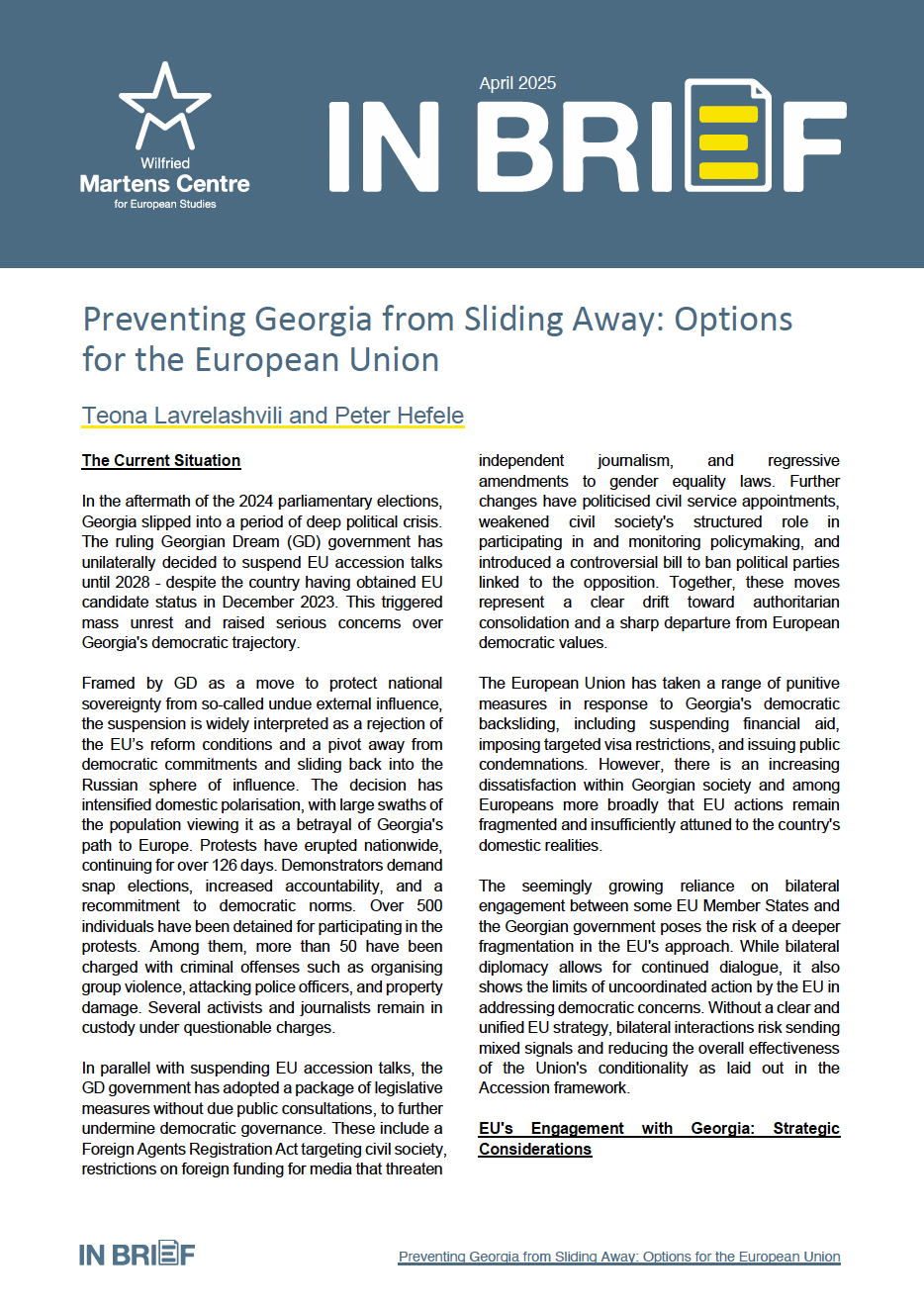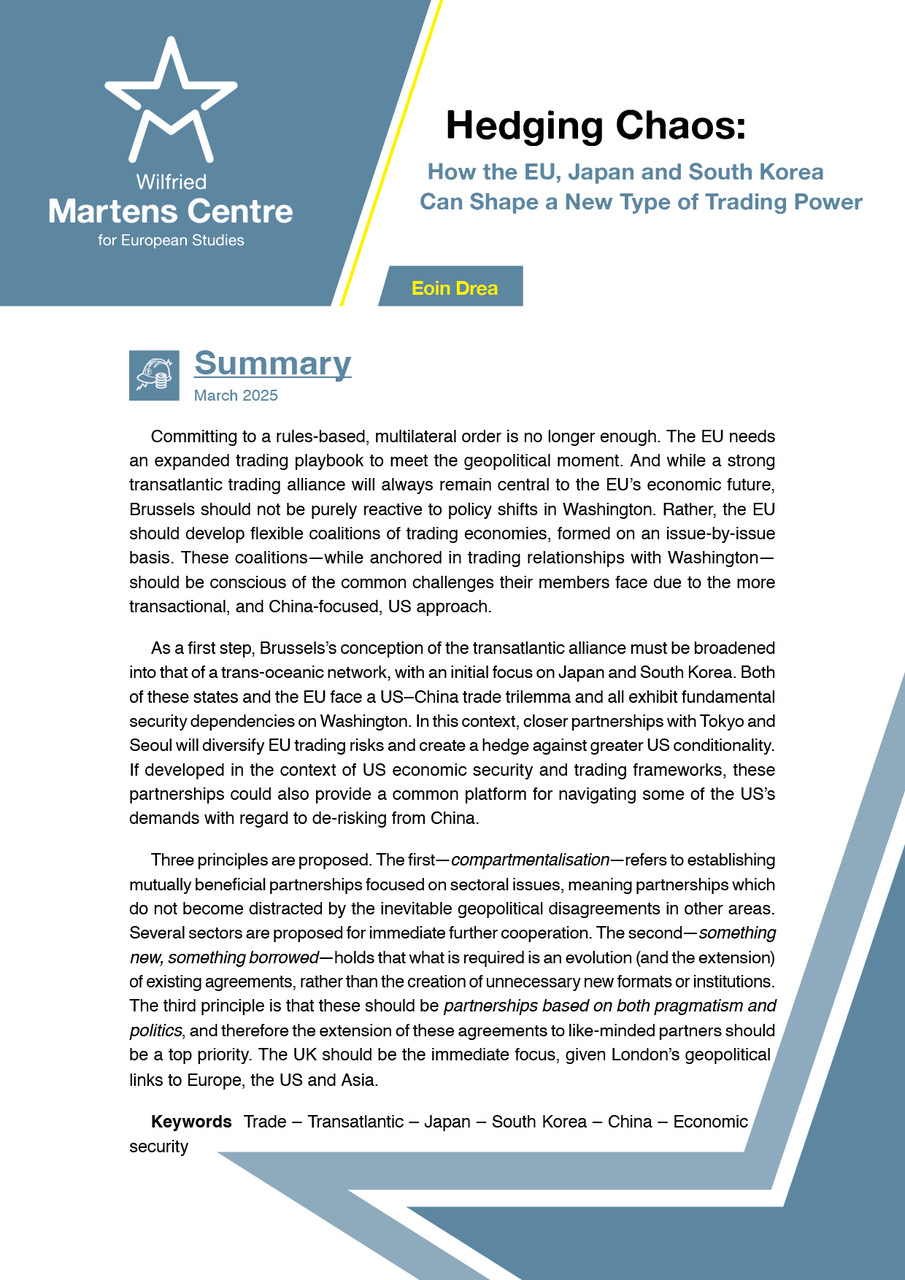A Post-Atlantic Era Beyond Shared Values? Europe’s Geopolitical Rebalancing Act
03 April 2025

The shifting geopolitical landscape presents Europe with a stark reality: it can no longer take its strategic relationship with the United States for granted, as established after World War II. Donald Trump’s revisionist approach—marked by the abandonment of traditional U.S. foreign policy, particularly regarding alliances and the rule of international law—along with the broader recalibration of global power dynamics, necessitates a fundamental reassessment of the European Union’s place in the world.
If we accept that international relations are now dictated solely by common interests rather than shared values, Europe faces two key imperatives. First, it must redefine its engagement with the U.S., identifying areas where cooperation remains mutually beneficial and doing so with pragmatism rather than nostalgia or sentimental idealism. Second, it must diversify its alliances, crafting a more balanced and multidimensional geopolitical strategy that secures its autonomy. The EU should explore or create platforms of common interests with other international players with whom it does not necessarily share common values but does align on strategic interests. European Commission President Ursula von der Leyen recently described this pragmatic approach, stating, “we might also have to work with countries that are not like-minded but do share some of our interests.”
India’s Emerging Role
India is an increasingly important strategic partner. As the world’s most populous democracy and one of the fastest-growing economies, India offers Europe a valuable opportunity for cooperation in economic growth and technology. However, the EU-India relationship remains complex, shaped by trade disputes, regulatory barriers, and differences in foreign policy approaches. While negotiations for a Free Trade Agreement (FTA) are ongoing, a concrete timeline has been set for its conclusion by 2025, with the aim of creating the largest deal of its kind globally. Within this framework, areas such as digital technology, semiconductor collaboration, and green energy investment could serve as the foundation for a stronger partnership, helping to overcome past frictions. Despite India’s close ties with both the U.S. and Russia, strengthening economic and strategic cooperation with Europe could provide substantial mutual benefits.
The Arab World: A Key Pillar in Energy and Investment
The Gulf states, particularly the United Arab Emirates, Qatar, and Saudi Arabia, have become increasingly influential in global markets. Closer ties with these countries—built on energy security, investment, and innovation—could provide Europe with new economic and geopolitical leverage, particularly as the continent transitions towards renewable energy sources. A key initiative in this regard is IMEEC, which aims to create a trade and infrastructure corridor linking India, the Middle East, and Europe. If effectively leveraged, this project could enhance Europe’s access to vital supply chains and energy resources while fostering regional stability. Additionally, attracting investment from the Gulf region could prove crucial in strengthening Europe’s innovation ecosystem.
China: A Complex but Necessary Relationship
Despite ongoing tensions, China remains a crucial technological and trade partner, a critical global economic power, and an indispensable interlocutor for Europe. This indispensability stems from two key areas:
- Supply Chains & Manufacturing: China remains central to the global supply chain, particularly in key industries such as pharmaceuticals, renewable energy, and electronics.
- Climate Change & Green Transition: Cooperation on climate initiatives and technology-sharing in areas like solar energy and electric vehicles remains critical.
A pragmatic approach that balances economic engagement with strategic caution will be essential. This entails selective cooperation—reducing overdependence on Chinese manufacturing while maintaining trade in essential goods—and strengthening investment screening mechanisms to safeguard European critical infrastructure from excessive Chinese control. The EU should seek ways to coexist and collaborate with China, even within a “cherry-picking” framework.
Canada: A Natural Ally
Canada, a liberal democracy with a strong commitment to the rule of law and multilateral cooperation, is a reliable partner for Europe. The Comprehensive Economic and Trade Agreement has already laid the groundwork for deeper economic and political cooperation, within a framework of shared positions on climate change, human rights, and security. Moreover, Trump’s recent blunt remarks about absorbing Canada as the “51st state,” along with the strong alignment on issues related to Russia, only serve to highlight Ottawa’s growing need for alternative strategic partnerships—something that could further strengthen its ties with Europe.
A More Assertive Europe
Europe cannot remain a passive observer of global developments. It is time for a new strategic approach. If the U.S. chooses to redefine its relationships based solely on transactional interests, the EU must adopt a multidimensional strategy to forge new alliances.
This approach does not imply a break with the U.S. but rather a more balanced stance that safeguards Europe against the uncertainties of the future. Moreover, this shift does not mean compromising on European principles; rather, it strengthens them. By maintaining its moral and strategic compass amid global turbulence, Europe can remain a pillar of peace and stability, a beacon of democracy, human rights, and international law, a hub for sustainable growth and prosperity for its citizens, and, after all, a geopolitical role model for the world.
Regardless of the challenges, the EU remains the world’s largest trading bloc, and its regulatory influence shapes global trade, from digital standards to environmental policies. While military power remains a work in progress, investing in European defence capabilities will be critical to the EU’s geopolitical leverage. This includes, among other measures, accelerating PESCO initiatives, strengthening the European Defence Agency, and increasing direct defence spending to enhance Europe’s strategic autonomy.
As the world increasingly shifts towards a “law of the jungle” approach to international relations, the EU must develop the necessary multilevel power to defend its interests effectively.
ENJOYING THIS CONTENT







